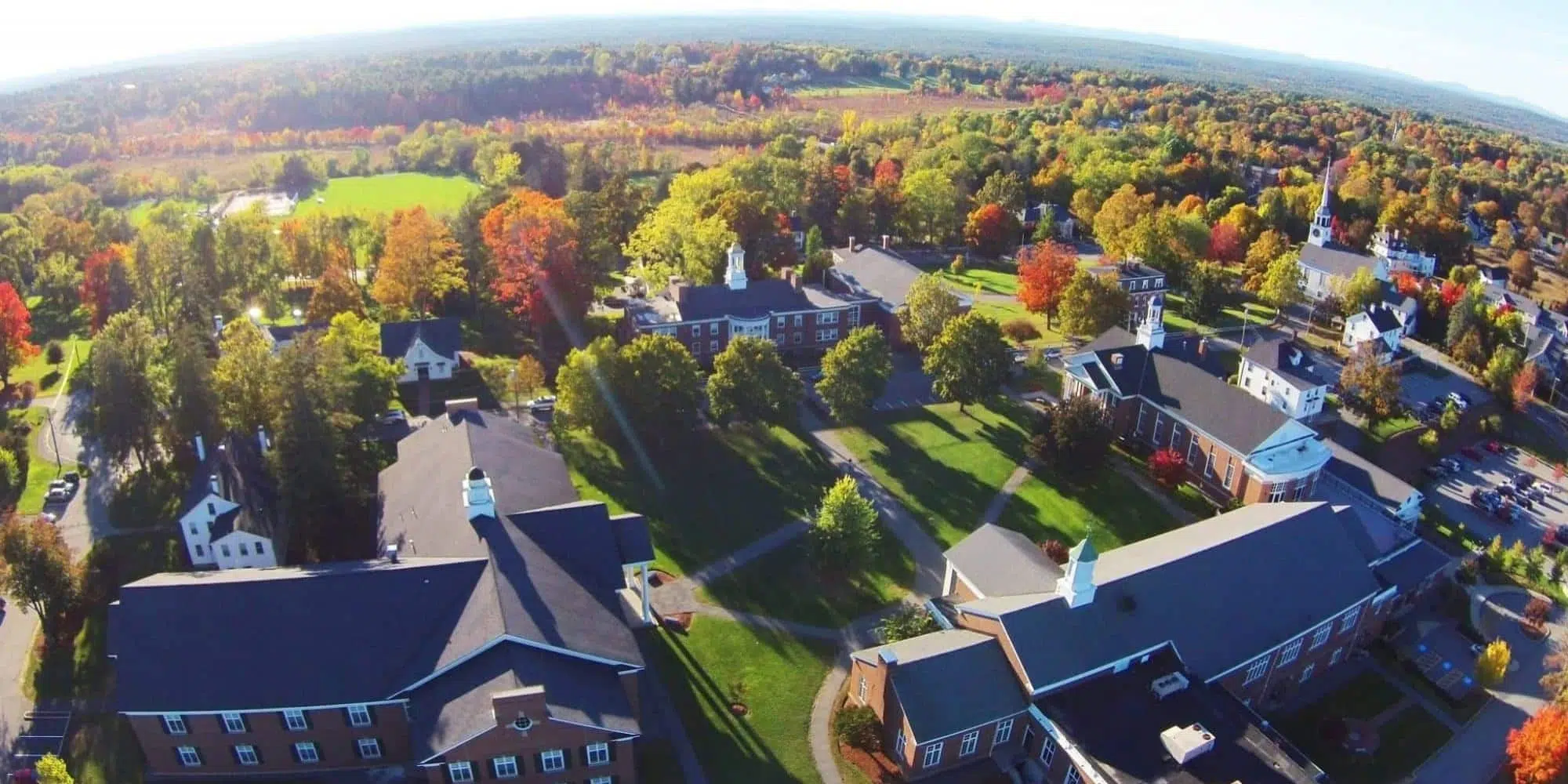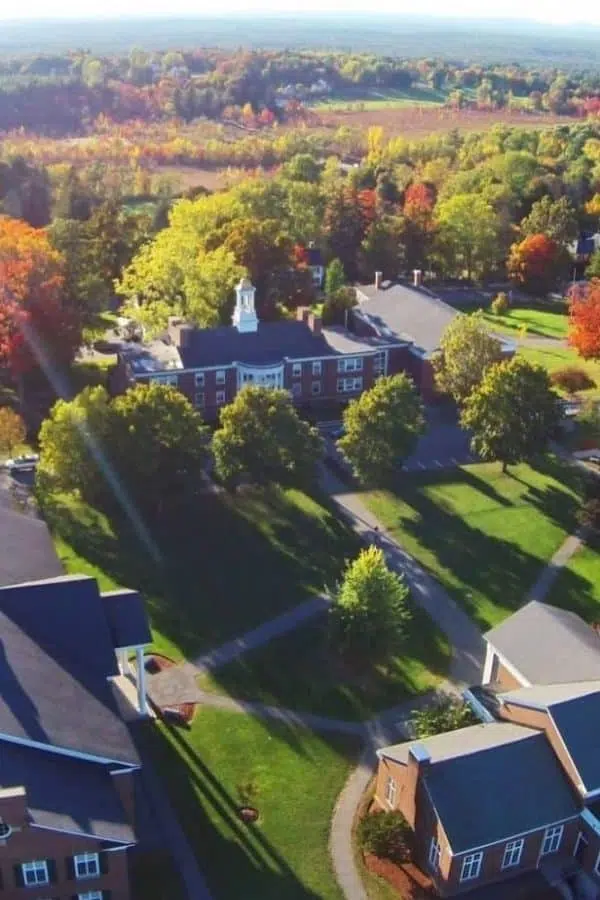Posted September 24, 2020
For our latest Coffee Talk—a virtual series where we gather small groups of close friends of the firm in the same sector—we sat down with leaders of fundraising at Beaver Country Day School, Blair Academy, Lawrence Academy, Noble and Greenough School, St. Mark’s School, and Taft School. Most of these participants have been gathering for Coffee Talk over the six months since COVID changed the fundraising game for these schools – and all schools.
Read on to see what is working and what is not, how they are pivoting their programs to adapt to the way school has opened, and what they forecast for the year ahead.
Happy school communities create happy fundraising outcomes – of course! But not all is happy in ways far beyond the control of fundraisers.
Not all school openings have been the same: some went off with barely a hiccup while others are in the throes of restoring equilibrium for faculty, parents and kids. These realities are dictating timetables, who can be approached when, and how ambitious fundraisers can be. And they are vastly expanding the need for fundraisers to be ears, troubleshooters, and politicians!
No surprise, all our participants agreed that the happiness factor of parents (the largest portion of annual funds for most) was the single greatest indicator of how their falls would go. Figuring how to walk the right line with parents is trickier than it has ever been.
Anxieties around retention of students and extra expenses related to safety and distancing are putting upward pressure on annual funds.
The good news: they all felt reasonably confident they could hold to their annual fund goals, and all project growth …maybe not the same growth they have seen in recent years, but forward momentum nonetheless. Those in campaigns have had some good success at the same time they wrestle with the fact they are, for the most part, campus-bound for the foreseeable future. Those working to get campaigns defined and launched say that prospects are interested and conversations are good, but that timelines are not in their control and in turn, pressuring the timing milestones that chief fundraisers have set for their programs.
One participant shared that their school was adding a Safe at School Fund within their annual fund plans to create awareness that responding to desires for “more in-person school” came with significant added costs.
The less parents can physically visit school, the greater their appetite for engagement.
The novelty of COVID is over and the desire of parents to be involved right now is higher than ever. There are no sideline opportunities on the athletic field, fewer opportunities to interact with the Heads of School whose plates are full getting school days launched, and still plenty of mystery to how all aspects of their child’s education is going to work.
Here are some of the ideas that our guests are implementing.
- Put a lot of energy into new parents. They know the least and the opportunity cost of them not feeling well embraced could be high.
One participant shared that they have scheduled bi-weekly round tables over the course of the next couple months, putting together small sets of new parents with kids in the same grade as their child. If you get the time you need from the Head of School, great. If you cannot, do it anyway and find other school partners to be the host. - Find new ways to communicate the value of the education you provide.
Help new parents understand that despite new safety measures, policies, and remote learning, etc., the value of the education your school provides is as high as ever. One participant shared their plans to host 4-6 sessions in which parents will be able to attend classes virtually. The sessions will conclude with a talk from their Board Chair about the finances of the school and the value of parent philanthropy. - Get creative! Travel virtually!
Because they cannot be on campus, finding ways to keep international families engaged is especially critical. One participant shared that their team had launched a virtual travel program. Each week, he and the Head of School will “visit” a different international city to host Zoom meetings with families in the area.
- Head outside while you still can.
Many participants reported that their parents are increasingly comfortable with—and asking for—opportunities to gather or be together face-to-face – six feet apart of course. Go on walks. Sit on their patio. Have lunch outside. Hang out near the drop-off line and have a chat. Use the tent that your school is using for a classroom. The days that you can comfortably do this are getting shorter!One participant shared that when they offered trustees a variety of ways to meet with their Head of School, every single one chose the socially distant outdoor option!
Several noted, however, that you need to be just as respectful and energized for those parents and staff who do not feel comfortable live. Find the balance and don’t go overboard.
We’d all been theorizing and now the evidence is in: Zoom solicitations work.
The evidence is speaking for itself – at least for the Annual Fund. Fundraisers have found that virtual meetings are quicker to schedule, more efficient, and in many cases, make it easier to get both parents on the call. Their advice: have someone other than you—the Head, a Board member, etc.—invite the “visit,” keep it short and tight, and get over our fear that it won’t work.
A number of participants shared that, thanks to the ease of scheduling Zoom calls, they’ve been able to hold, and sometimes even be more ambitious with, the performance metrics they had set for their team.
Read our blog post on Zoom solicitations for additional advice and strategies.
It’s also a fine line to keep your Head of School appropriately informed about parent feedback while not unnecessarily piling on to their plate.
Fundraisers are overly privy to the opinions and concerns of parents – and those are overly abundant this September. Knowing what to share with your Head of School and how best to share it is a balancing act. One great idea shared was to keep a log of weekly calls, sort through it, and set a regular meeting to share with the Head. That way, you can get the point across, handle individual situations that need immediate attention, be efficient, and avoid the daily emails that the Head cannot possibly maneuver with the same attention they may have had in prior years. You will also know when and how you can be the problem solver. The bottom line: resist the “tell all” approach we could have in the past and learn to share the “need to know.” And above all else, keep in mind what they need to be successful as Head of School.



